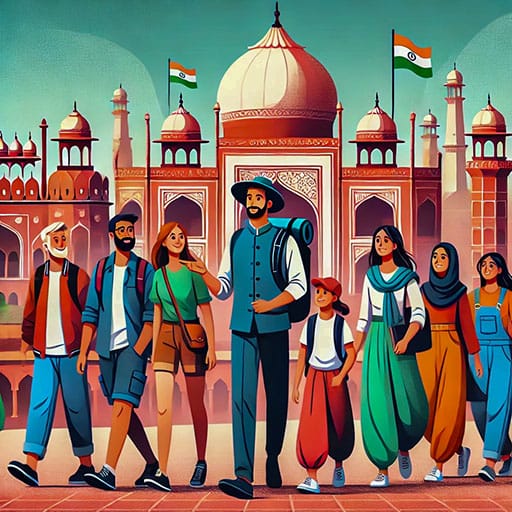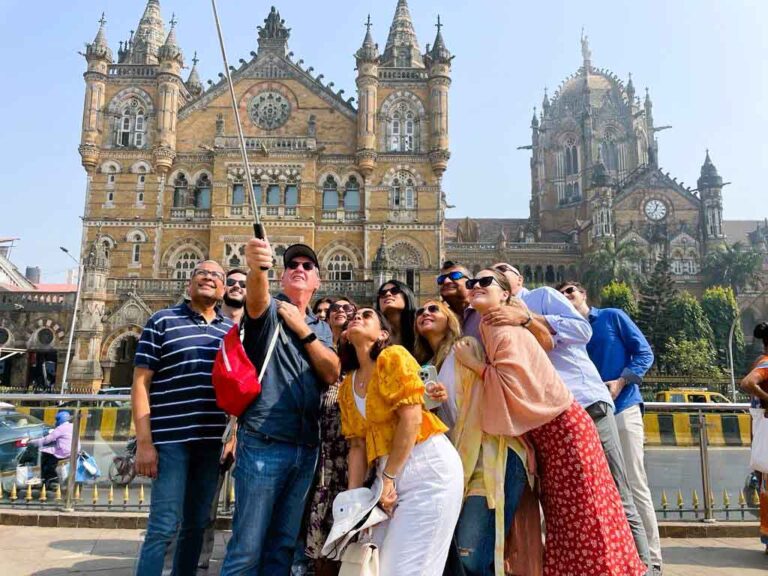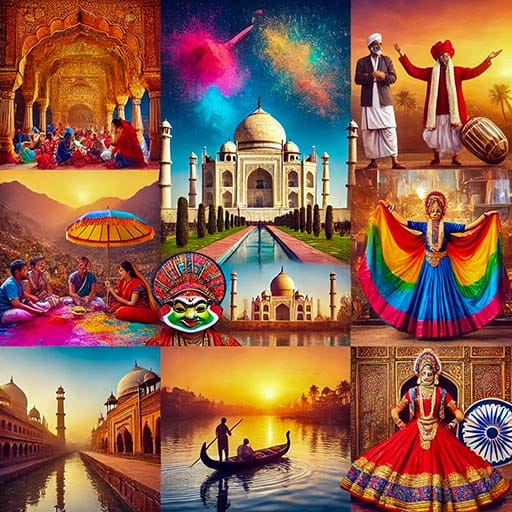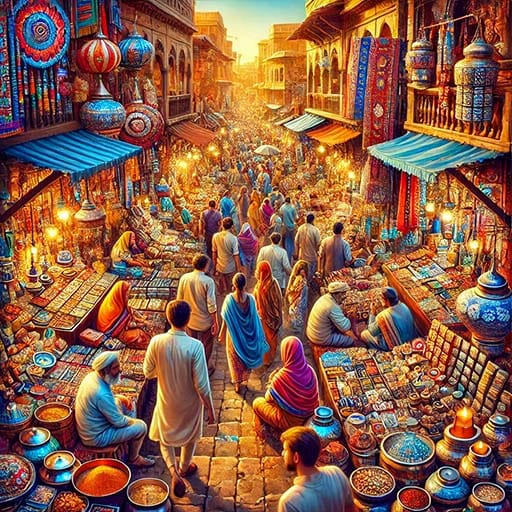India, known for its rich cultural heritage, stunning landscapes, and vibrant festivals, attracts millions of tourists every year. However, for many first-time travelers, the question, “Is India safe for tourists?” often arises. As with any travel destination, it’s essential to understand potential challenges and know how to navigate them to enjoy a safe and fulfilling experience. This guide addresses key safety tips and insights for travelers considering a trip to India.
Understanding Safety in India
India is generally safe for tourists, but like many countries, it has areas where visitors should exercise caution. With the right preparation and awareness, tourists can enjoy a smooth and secure travel experience across India’s beautiful destinations. From bustling cities to tranquil temples and historical landmarks, India offers countless experiences that can be safely enjoyed by travelers from all backgrounds.
1. General Safety in Major Tourist Destinations
Most major tourist destinations in India—like Delhi, Jaipur, Mumbai, Agra, and Goa—are considered safe for visitors. These places are well-equipped with tourist facilities, and local authorities make a concerted effort to protect travelers. Popular areas are often patrolled by police, and the local tourism industry is accustomed to helping foreigners.
However, like any bustling city, these places have petty crime, such as pickpocketing and scams, especially in crowded areas. To stay safe:
- Keep your belongings secure.
- Avoid displaying expensive items in public.
- Be cautious of anyone approaching you with unsolicited offers or services.
2. Health and Hygiene Precautions
For travelers wondering if India is safe from a health perspective, here are some tips:
- Stay Hydrated: Always carry bottled water, as tap water is generally unsafe to drink.
- Food Safety: Try the amazing street food, but ensure it’s from a reputable vendor or restaurant. Choose hot, freshly cooked food to avoid any issues with hygiene.
- Health Precautions: Vaccinations like typhoid, hepatitis, and tetanus are recommended before visiting India. It’s also wise to carry basic medications for stomach ailments.
By taking these precautions, tourists can enjoy India’s culinary diversity without risking their health.
3. Transportation Safety
Transportation in India can be chaotic, especially in cities where traffic rules might seem loosely followed. Here’s how to stay safe:
- Use Reputable Taxi Services: In urban areas, apps like Uber and Ola are reliable options. In tourist destinations, licensed taxis or pre-arranged transportation is ideal.
- Train Travel: Train journeys are a unique experience in India, but it’s best to book in advance, preferably in AC or reserved compartments. Keep your belongings secure, especially on overnight trains.
- Public Transport: Buses and local trains can get crowded. If you’re not comfortable with bustling crowds, consider private transport options.
4. Safety for Solo and Female Travelers
Many solo travelers, including women, visit India safely each year. However, being mindful of your surroundings and following certain guidelines will enhance your sense of security:
- Dress Respectfully: In conservative areas, dressing modestly helps avoid unwanted attention. Covering shoulders and knees is advisable.
- Avoid Walking Alone at Night: Stick to well-lit areas and avoid isolated streets after dark.
- Be Cautious of Overly Friendly Strangers: While many people are genuinely hospitable, exercise caution with strangers who approach with unsolicited advice or invitations.
India can be a rewarding destination for solo travelers, especially if they plan and stay vigilant.
5. Booking Tours Through Reputed Travel Companies
Booking tours with a reputable travel company is one of the best ways to ensure safety and enjoy an organized experience. Trusted tour operators often provide knowledgeable guides, secure transport, and assistance in case of unexpected issues. Here’s why choosing a reliable travel company can enhance your trip:
- Expert Guidance: Professional tour guides offer local knowledge, helping you navigate safely while enriching your experience.
- Verified Itineraries: Reputable companies carefully plan itineraries, covering safe and well-known tourist spots.
- Support Services: In case of emergencies or changes, a reliable travel company provides support, ensuring a stress-free experience.
- Convenience and Peace of Mind: With pre-arranged transport, hotel bookings, and vetted activities, you can relax and enjoy the trip, knowing that experienced professionals handle the logistics.
When planning your India trip, choose tour companies with excellent reviews and strong reputations in the travel industry, such as Passport Lifestyles or other well-reviewed operators. Doing so ensures that your travel experience is enjoyable and hassle-free.
6. Avoiding Tourist Scams
Like any popular tourist destination, India has its share of scams targeted at visitors. Common scams include:
- Fake Tour Guides: Only hire licensed guides through reputable agencies or your hotel.
- Overcharging for Services: Confirm prices before accepting services like rickshaw rides or souvenir purchases. Bargaining is acceptable in most markets.
- “Free” Services with Hidden Fees: Some people may offer “free” tours or blessings at temples, only to demand money afterward.
Being aware of these scams will help you enjoy your trip without unnecessary hassle.
7. Cultural Awareness and Respect
Respecting local customs and traditions will not only enhance your experience but also keep you safe. Some key points to remember:
- Remove Shoes Before Entering Temples: This is a standard practice in India.
- Avoid Public Displays of Affection: India is a conservative society, and public displays of affection may be frowned upon.
- Ask for Permission Before Taking Photos: People, especially in rural areas, may not appreciate being photographed without consent.
A culturally sensitive approach will go a long way in making your stay pleasant and harmonious.
8. Staying Connected and Informed
It’s essential to stay connected during your trip for safety reasons:
- Local SIM Cards: Purchase a local SIM card for access to maps, ride apps, and emergency contacts.
- Keep Your Embassy’s Contact Information: Have the contact details of your country’s embassy or consulate in India.
- Stay Informed About Local News: Some areas might have local disturbances or events, so it’s wise to stay updated.
9. Emergency Contacts and Support
For added peace of mind, keep a list of emergency contacts:
- Police: Dial 100 for the police in any emergency.
- Medical Emergency: Dial 102 for medical emergencies.
- Tourist Helplines: The Indian government has a helpline specifically for tourists: 1363 (or +91-1800-111-363).
Knowing these numbers will make it easier to reach help if you ever need assistance.
Final Thoughts: Is India Safe for Tourists?
So, is India safe for tourists? Yes, absolutely—especially if you travel smart and take basic precautions. India offers diverse experiences, from the bustling streets of Delhi to the peaceful backwaters of Kerala and the majestic Himalayas. With awareness, cultural sensitivity, and a bit of planning, travelers can have a safe, enriching journey.
India warmly welcomes millions of tourists each year, and for most, it’s a transformative experience that creates lifelong memories. While every destination has its challenges, India’s beauty, history, and vibrant culture make it well worth the visit.
Frequently Asked Questions (FAQs)
Q: What are the safest cities to visit in India?
A: Cities like Jaipur, Mumbai, Kochi, and Bengaluru are generally safe for tourists, with good infrastructure and established tourist facilities.
Q: Can I travel solo in India safely?
A: Yes, many solo travelers explore India safely. Plan carefully, stay vigilant, and follow basic safety tips for a secure experience.
Q: How should I handle money in India?
A: Use a mix of cash and digital payments. ATMs are widely available, but it’s best to carry some cash for small purchases and local markets.





